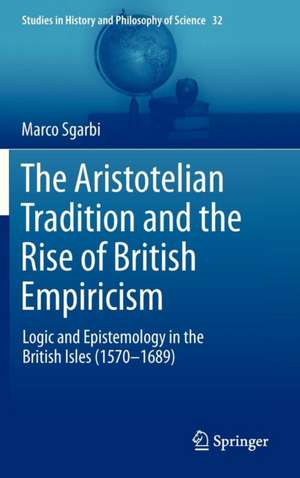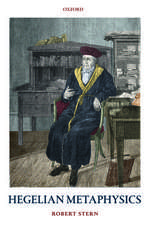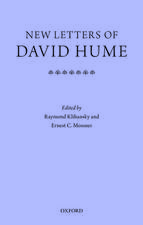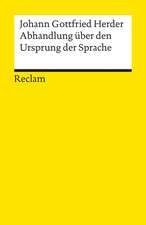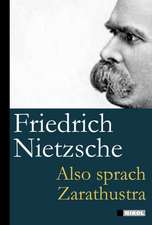The Aristotelian Tradition and the Rise of British Empiricism: Logic and Epistemology in the British Isles (1570–1689): Studies in History and Philosophy of Science, cartea 32
Autor Marco Sgarbien Limba Engleză Hardback – 11 oct 2012
| Toate formatele și edițiile | Preț | Express |
|---|---|---|
| Paperback (1) | 639.25 lei 6-8 săpt. | |
| SPRINGER NETHERLANDS – 9 noi 2014 | 639.25 lei 6-8 săpt. | |
| Hardback (1) | 894.97 lei 6-8 săpt. | |
| SPRINGER NETHERLANDS – 11 oct 2012 | 894.97 lei 6-8 săpt. |
Din seria Studies in History and Philosophy of Science
- 15%
 Preț: 650.19 lei
Preț: 650.19 lei - 15%
 Preț: 700.75 lei
Preț: 700.75 lei -
 Preț: 284.47 lei
Preț: 284.47 lei - 15%
 Preț: 702.24 lei
Preț: 702.24 lei -
 Preț: 389.88 lei
Preț: 389.88 lei - 18%
 Preț: 1222.94 lei
Preț: 1222.94 lei - 15%
 Preț: 647.08 lei
Preț: 647.08 lei - 15%
 Preț: 645.47 lei
Preț: 645.47 lei - 18%
 Preț: 956.33 lei
Preț: 956.33 lei - 18%
 Preț: 953.97 lei
Preț: 953.97 lei - 15%
 Preț: 646.11 lei
Preț: 646.11 lei - 15%
 Preț: 641.85 lei
Preț: 641.85 lei - 15%
 Preț: 644.49 lei
Preț: 644.49 lei - 18%
 Preț: 951.29 lei
Preț: 951.29 lei - 15%
 Preț: 647.40 lei
Preț: 647.40 lei - 18%
 Preț: 953.20 lei
Preț: 953.20 lei - 18%
 Preț: 946.87 lei
Preț: 946.87 lei - 18%
 Preț: 1384.56 lei
Preț: 1384.56 lei - 18%
 Preț: 1234.14 lei
Preț: 1234.14 lei - 15%
 Preț: 637.78 lei
Preț: 637.78 lei - 15%
 Preț: 633.53 lei
Preț: 633.53 lei - 18%
 Preț: 1219.77 lei
Preț: 1219.77 lei - 24%
 Preț: 586.94 lei
Preț: 586.94 lei - 18%
 Preț: 967.56 lei
Preț: 967.56 lei - 15%
 Preț: 641.38 lei
Preț: 641.38 lei - 15%
 Preț: 642.68 lei
Preț: 642.68 lei - 15%
 Preț: 642.03 lei
Preț: 642.03 lei - 15%
 Preț: 641.85 lei
Preț: 641.85 lei
Preț: 894.97 lei
Preț vechi: 1091.42 lei
-18% Nou
Puncte Express: 1342
Preț estimativ în valută:
171.28€ • 176.94$ • 142.54£
171.28€ • 176.94$ • 142.54£
Carte tipărită la comandă
Livrare economică 25 martie-08 aprilie
Preluare comenzi: 021 569.72.76
Specificații
ISBN-13: 9789400749504
ISBN-10: 9400749503
Pagini: 272
Ilustrații: XII, 260 p.
Dimensiuni: 155 x 235 x 20 mm
Greutate: 0.56 kg
Ediția:2013
Editura: SPRINGER NETHERLANDS
Colecția Springer
Seria Studies in History and Philosophy of Science
Locul publicării:Dordrecht, Netherlands
ISBN-10: 9400749503
Pagini: 272
Ilustrații: XII, 260 p.
Dimensiuni: 155 x 235 x 20 mm
Greutate: 0.56 kg
Ediția:2013
Editura: SPRINGER NETHERLANDS
Colecția Springer
Seria Studies in History and Philosophy of Science
Locul publicării:Dordrecht, Netherlands
Public țintă
ResearchCuprins
1 Introduction.- 2 Logic in the British Isles during the Sixteenth and Seventeenth Centuries.- 3 Logic in the Universities of the British Isles.- 4 Zabarella’s Empiricism5 Early Aristotelianism between Humanism and Ramism.- the British School7 Continental Aristotelians in the British Isles.- 8 The Empiricism of the Seventeenth-Century Aristotelianism.- 9. The Reformers of Aristotelian Logic.- 10 Late Seventeenth-Century Aristotelianism.- 11 Conclusion.- Bibliography.-Index
Recenzii
From the reviews:
“Marco Sgarbi offers a detailed examination of the epistemology and methodologies propounded by the logic textbooks in use at both Oxford and Cambridge … . Sgarbi has done sterling work in surveying the neglected logic texts of the period. The great value of his study is its detailed examination of these humble textbooks and his demonstration of their value as a source in the history of philosophy. For that reason it will be a valuable point of reference for all historians of early modern philosophy.” (Sarah Hutton, Intellectual History Review, October, 2013)
“Sgarbi, who has read the works of Ricardo Pozzo carefully, has written a book with a title that will command immediate attention from a wide range of historians and philosophers of early modern science. … Sgarbi’s energetic researches have produced a fairly thorough work in which nearly every printed English logic textbook is dealt with. … The book will be very welcome as introducing a necessary and very helpful nuancing to the views of the development of empiricism … .” (Daniel C. Anderson, Journal of Early Modern Studies, Vol. 2 (2), 2013)
“Marco Sgarbi offers a detailed examination of the epistemology and methodologies propounded by the logic textbooks in use at both Oxford and Cambridge … . Sgarbi has done sterling work in surveying the neglected logic texts of the period. The great value of his study is its detailed examination of these humble textbooks and his demonstration of their value as a source in the history of philosophy. For that reason it will be a valuable point of reference for all historians of early modern philosophy.” (Sarah Hutton, Intellectual History Review, October, 2013)
“Sgarbi, who has read the works of Ricardo Pozzo carefully, has written a book with a title that will command immediate attention from a wide range of historians and philosophers of early modern science. … Sgarbi’s energetic researches have produced a fairly thorough work in which nearly every printed English logic textbook is dealt with. … The book will be very welcome as introducing a necessary and very helpful nuancing to the views of the development of empiricism … .” (Daniel C. Anderson, Journal of Early Modern Studies, Vol. 2 (2), 2013)
Textul de pe ultima copertă
This book is a radical reappraisal of the importance of Aristotelianism in Britain. Using a full range of manuscripts as well as printed sources, it provides an entirely new interpretation of the impact of the early-modern Aristotelian tradition upon the rise of British Empiricism, and reexamines the fundamental shift from a humanist logic to epistemology and facultative logic. The task is to reconstruct the philosophical background and framework in which the thought of philosophers such Locke, Berkeley and Hume originated: some aspects of their empiricism can be explained only in reference to the academic Aristotelian tradition, even if these authors established themselves as anti-scholastic, anti-Aristotelian philosophers outside the official institutions.
Caracteristici
Contains a unique history of epistemology before John Locke First book that considers the intellectual background of the rise of empiricism and shows the continuity of the Aristotelian scientia in the seventeenth century Considers all the logical textbooks, which were published in Britian between (1570–1689 ?
